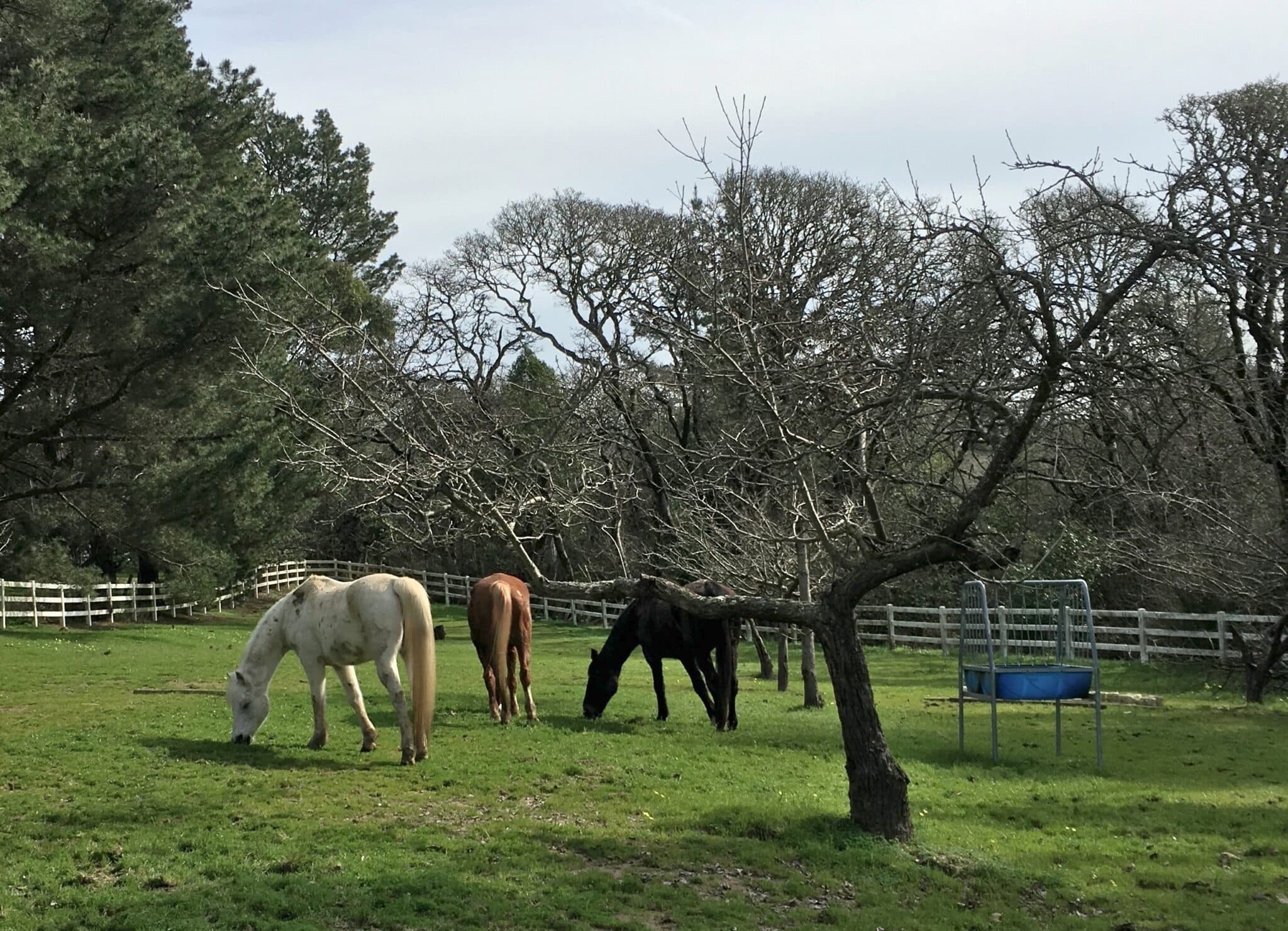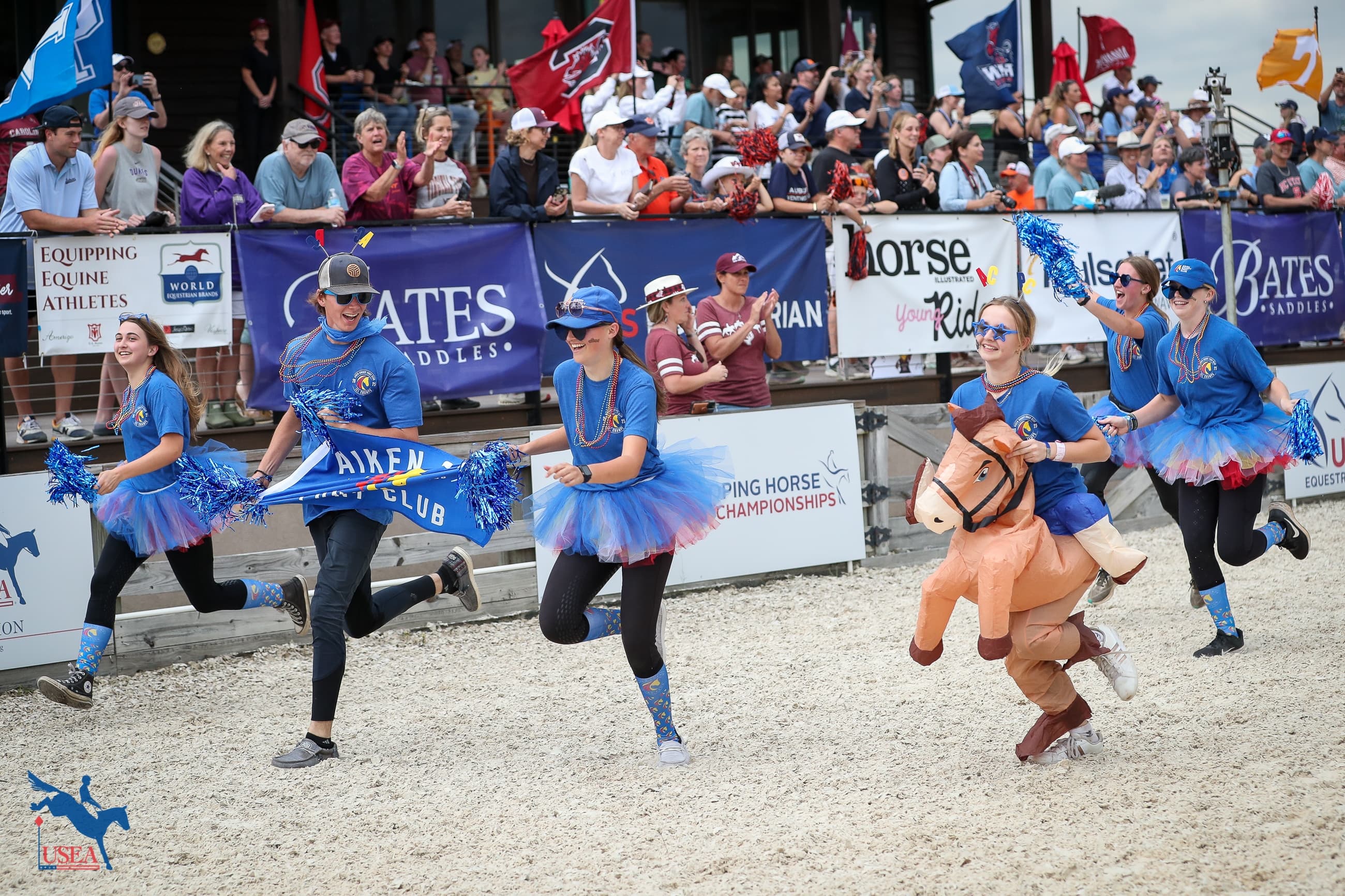Staying Ahead of Equine Influenza

This educational article is brought to you by Merck Animal Health, the Official Animal Health Care Provider of the USEA.
Runny nose, fever, cough, fatigue. It’s flu season. Winter and early spring is the most active time of year for equine influenza, so it’s an important time to vaccinate your horse. And like human flu vaccines, equine flu vaccines must periodically be updated to protect against the strains currently circulating in the field and threatening horses.
Equine Flu – More Common Than You Think
Equine influenza virus (EIV) is one of the most common infectious upper respiratory diseases in the horse. It is widespread in the equine population of the United States and throughout most of the world. Equine influenza spreads rapidly with clinical signs appearing within 24 to 72 hours following exposure and can be transmitted more than 50 yards through the air by a coughing horse. Indirect transmission can occur via hands, clothing and common use articles such as brushes, buckets, ropes and bits. In an unvaccinated horse population that has never been exposed to the virus, EIV has a nearly 100 percent infection rate.
Outbreaks occur most frequently when susceptible horses are transported to showgrounds, sales or similar events and then housed in close quarters. Stress associated with travel and increased exposure to other horses and environments can increase a horse’s susceptibility to EIV.
Combatting Today’s Threat
Influenza viruses are constantly changing at the molecular level as they pass from one host to another. This process, known as antigenic drift, leads to new virus strains that a horse’s immune system may not recognize. Due to the changes that can occur with EIV, it is paramount to use effective vaccines with relevant strains to aid in providing the best protection against viruses currently circulating.
Merck Animal Health has been conducting an ongoing 10-year respiratory surveillance program to monitor the incidence of infectious respiratory disease, identify current circulating strains of virus, and evaluate efficacy of current vaccines. Through this program, a new highly infectious and relevant equine influenza strain was identified. It is the foundation of the next generation of Prestige® flu-containing killed virus vaccines from Merck Animal Health, which represent the most current equine influenza protection available for your horse.
Merck Animal Health’s flu-containing vaccines now include this highly relevant clade 1 strain, as well as clade 2 protection – as recommended by the World Organisation for Animal Health (OIE) Expert Surveillance Panel on Equine Influenza and American Association of Equine Practitioners. Clade 1 strains of equine influenza primarily circulate in the United States, while clade 2 predominantly circulates in Europe. Although there have been no clade 2 influenza outbreaks in the U.S., clade 2 protection is considered an additional safeguard for horses that travel internationally.
Protection that matters for your horse
An influenza diagnosis is not only miserable for your horse, but it can also mean weeks or even months of lost time in the saddle for you. Horses require at least a week of rest for every day of fever. Don’t let equine influenza get in the way of your spring training and competition plans. Now is the time to have a discussion with your veterinarian to ensure your horse is receiving adequate influenza protection. For more information on the new updated flu vaccines from Merck Animal Health, visit www.merck-animal-health-equine.com.
Copyright © 2018 Intervet Inc., d/b/a Merck Animal Health, a subsidiary of Merck & Co., Inc.














